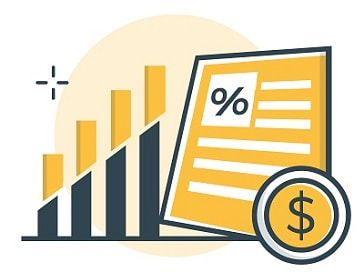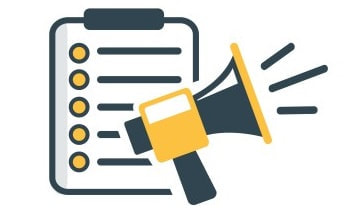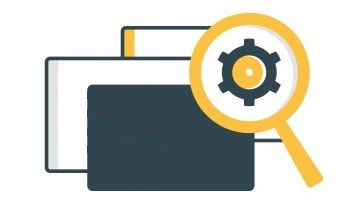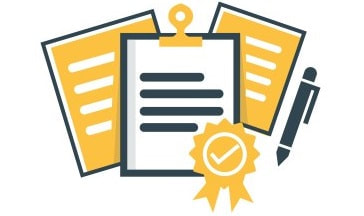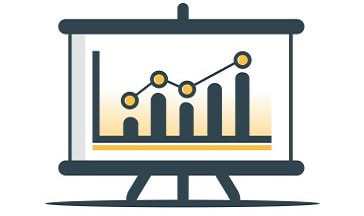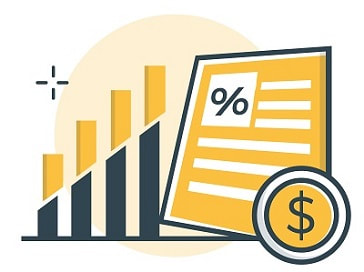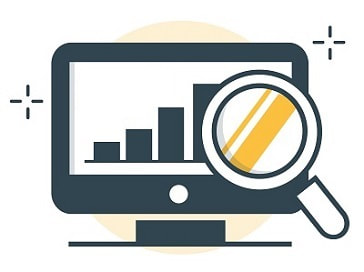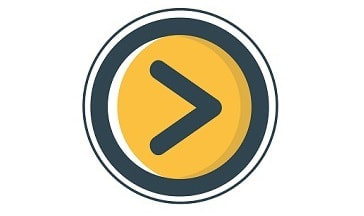MoneyHub’s Money in a Nutshell
To help form great money habits for life, we reveal ten super important money must-knows for every teenager
Updated 12 May 2024
Download this guide in PDF format, ready to print and share
Every year, tens of thousands of children leave school and go into the world. In a pre-COVID-19 world, no one thought much about getting into debt because everyone else was doing it. However, 2020 changed how people behave forever – knowing how to manage your money and saving for a rainy day is now essential to functioning as an adult.
In a nutshell, we wholeheartedly believe in the following principle:
Income of 100, spend 99 = happiness
Income of 100, spend 101 = misery
Creating a life within your means is incredibly important. You can save, buy a property and enjoy things that you value. The alternative, spending more than you earn, is, in no uncertain terms, a recipe for disaster. Eventually, the long-term debt created to meet short-term needs hits a brick wall, and bad things happen.
Why should I read this guide?
We’ve put this guide together for one reason – to give you the tools and information so you can develop a great relationship with money. We cover what we consider to be the core foundations of financial education. And best of all, we’ve done our very best to make it as engaging as we can.
Download this guide in PDF format, ready to print and share
Every year, tens of thousands of children leave school and go into the world. In a pre-COVID-19 world, no one thought much about getting into debt because everyone else was doing it. However, 2020 changed how people behave forever – knowing how to manage your money and saving for a rainy day is now essential to functioning as an adult.
In a nutshell, we wholeheartedly believe in the following principle:
Income of 100, spend 99 = happiness
Income of 100, spend 101 = misery
Creating a life within your means is incredibly important. You can save, buy a property and enjoy things that you value. The alternative, spending more than you earn, is, in no uncertain terms, a recipe for disaster. Eventually, the long-term debt created to meet short-term needs hits a brick wall, and bad things happen.
Why should I read this guide?
We’ve put this guide together for one reason – to give you the tools and information so you can develop a great relationship with money. We cover what we consider to be the core foundations of financial education. And best of all, we’ve done our very best to make it as engaging as we can.
Our Money in a Nutshell guide covers ten money must-knows:
Money in a Nutshell - Everything Teenagers Need to Know
Money doesn't need to be complicated or scary. It doesn't matter if your parents are bad with money, or if you've never earned any, this guide sets out ten basic must-knows for a healthy, long-lasting relationship with money.
If you do have any questions, please email our team - we'd love to hear from you.
If you do have any questions, please email our team - we'd love to hear from you.
Income and ExpensesThe most important lesson in life is simple – spend less than you earn and you’ll generally be fine. Why? Because you can save, and having savings gives you choices and freedom. Let's test that in an example. Imagine this: you're 25 and, without warning, the company you work for closes down suddenly. This leaves you out of a job. You could be in two situations:
Our view:
So, to avoid being poor, how do I manage my money to spend less than I earn?It’s not complicated, but it is a bit boring:
Summary – Income and Expenses in a nutshell:
Additional information: Sorted in Schools has some very useful tools to demonstrate income and expenses - the starter pack is a good place to start. The interactive supermarket shopper is a popular tool to understand how money works. |
Banking and Credit CardsBanks are everywhere and everyone needs them, but they make almost all of their money from one thing – debt. Some of the debt is good, like mortgage debt (which helps you buy a home). But a lot of debt is bad – like credit card debt and personal loans (which can be harder to repay than you first think). The good news is that as students, you’ll be offered good bank account deals as banks want to win you as a customer for life.
We believe everyone should have a bank account, and there’s no better time than now. Our guides to best bank accounts for kids and best bank accounts for students shows you what’s out there. Best of all, you’re free to pick any bank – it doesn’t matter where your parents have an account, the choice is all yours. What is a credit card, and should I get one?Anyone over 18 and apply for a credit card; student credit cards, if approved, let you spend up to around $500 and pay it back later. It works like a debit card, but you don’t need the money in your account. If you don’t repay what you spend (usually by a specific day the following month), you’ll pay interest on what you owe. This can get expensive as interest rates are high. Whether or not you should get one is your choice. If you start struggling to pay it back, then you’ll learn fairly fast about how expensive bad debt can be.
Does a credit card cost money?Credit cards do cost money; some charge an annual fee which is something you have to pay just for owning a credit card. All charge interest if you don’t pay what you owe in time – 20% per year gets expensive. And finally, if you lose your card or use it buying stuff overseas, there are extra fees too. So, in summary, credit cards cost you in many ways.
Summary – Banking in a nutshell:
|
Pay-Later SchemesAfterpay, LayBuy and countless other pay-later apps promote themselves as alternatives to credit cards. They are, in essence, apps that pay for things you buy, and you pay the cost back later. But instead of charging interest if you pay late, they charge you ‘late fees’.
How does Afterpay and the rest of these apps work?When you buy something, many shops let you pay by credit card, debit card, EFTPOS, cash or a pay-later service. If you choose that option, you have to download the app, sign up for the account, wait to be approved and then use the service to pay for what you’re buying. You then get an email telling you that you’ve got to pay the cost back over 5, 6, 7 or 8 weeks, depending on what app you used. For example, if you bought clothes for $200 using Afterpay, you would pay 25% upfront (via debit or credit card), and then three further 25% payments over six weeks, i.e. one every fortnight. If you miss one payment, you’ll pay a fee.
Summary – Pay-Later schemes in a nutshell:
|
InsuranceInsurance is a financial product which protects you against disasters that you can’t afford to pay yourself. For example, car insurance covers you if you hit someone else’s car, travel insurance pays out if you get taken to hospital while overseas, home insurance gives you money if your house is broken into or burns down. You can also get insurance to pay you money if you get sick and can’t work.
All insurance has one thing in common - you pay an annual fee, and if disaster strikes, you can claim on your losses. If and when you do claim, you’ll pay an ‘excess’, which is a sum of money to get the insurance payout. For example, If you have a car crash, your insurer may charge $400 to replace your car. You’ll hear the word ‘policy’ a lot – when you buy insurance; you get a document which covers what you’re covered for, and what you’re not. This is the 'policy', and it will also tell you how much your excess charge is per claim. Do I need insurance?We don’t believe students need insurance unless it’s for a specific risk (e.g. travel insurance if you go overseas). Banks and insurers will try to push you to buy contents insurance – our guide explains why you probably don’t need it (unless you own heaps of stuff which you can’t afford to replace).
Summary – Insurance in a nutshell
Additional information: Banqer has some helpful pick-a-path insurance examples that reinforce what we've said above. While the actors are primary school aged, the lessons this resource teaches apply to any adult. |
InvestingInvesting is not something we can cover in a few paragraphs. But we’ll do our best. Investing is the process of putting money into a financial scheme (shares, property, or a business) with the expectation of achieving a profit. With any investment, the amount of money you earn depends on the risk. There are low risk, medium risk and high-risk investments, and generally, investing is a long-term activity. For example, you invest $500 today in a term deposit and earn interest over the next 2-3 years until you invest it elsewhere or spend it.
When should I start investing?You can invest at any age – for example, putting $100 you’ve saved up into a savings account is ‘investing’ by definition. If you take the same $100 and buy shares in a company, you are also investing. It’s never too early to invest, but investing isn’t guesswork – get it wrong, and you can lose all your money. Our guide to investing covers the basics.
What should I invest in, and how much money do I need?Learn about what you can invest in using this guide. KiwiSaver is also an investment, and you can sign up to that for free. Our KiwiSaver guide below explains what you need to know and why it's a great idea to sign up.
Summary – Investing in a nutshell:
|
Compound InterestThis gem needs its own section; we believe understanding compound interest is vital for starting a great relationship with money. To understand compound interest is to unlock a lifetime of wealth and choices.
What is compound interest and why is it important?It is best explained in an example:
Summary – Compound interest in a nutshell:
|
Superannuation and KiwiSaverWe see different organisations try to promote retirement as something for teenagers to be ‘concerned’ about. Our view is very different. We think every teenager should join KiwiSaver as soon as possible, but shouldn’t worry about ‘superannuation and your retirement’ until they’re in their mid-20s…if not later. Quite simply, we believe there’s enough to focus on without looking at something relevant in 50+ years.
What is KiwiSaver, and what does it give me?
Summary – Superannuation and KiwiSaver in a nutshell:
Additional information: Sorted in Schools has some helpful pick-a-path examples about KiwiSaver and retirement in general that reinforce what we've said above. |
TaxThe Inland Revenue, known as the IRD, is a government department in charge of collecting tax. It does this in two main ways:
Where does all the tax money go, and why do I need to pay it?The government pays for everything with tax revenue – schools, roads, hospitals, pensions for elderly, social welfare, and so much more. Paying income tax is compulsory for anyone working in New Zealand. And, even if you’re not working, everything you buy has GST, so the government still earns money from your spending. There’s a saying that ‘death and taxes’ are the only certainties in life, and New Zealanders pay tax to help make the country be the best it can be.
Do I need to do talk to the IRD?Yes – you will need an IRD number if you work or having savings earning interest. If you haven’t already applied for an IRD number, you can do that easily by following this guide from the IRD. You’ll need a passport or proof of ID. It’s free, pain-free and takes about 10 days to process. Once done, you’ll have a shiny new IRD number to give to employers, banks, investment platforms…and you’ll have the same IRD number for life!
Summary – Tax in a nutshell:You’ll pay tax on everything you buy (GST), any money you earn from working, as well as money earned on savings (PAYE). The IRD, generally, is easy to deal with and upfront about your obligations. To start things off, you need an IRD number, which is easy to get.
More details: Our beginner's guide to tax explains what you need to know to make tax 'easy'. |
Student loansStudent loans allow you to borrow money from the government to pay for studies, including fees, living costs and course-related costs like laptops, books and equipment. If you plan to go out of town for university, this section is important. Based on your needs, you can apply for up to four different student loan entitlements. Our guide to student loans has been written to help year 12 and 13 students understand what's involved.
Here's what you can get:
How do Student Loan repayments work, and how much do I need to pay?It's easy - you repay 12% of everything you earn, but only if you earn at least $380 a week before tax (about $19,760 a year before tax.) You pay 12% of every dollar earned above this threshold. But, your student loan balance is only interest-free as long as you work and live in New Zealand. This means if you move between jobs and/or take time off, you won't be charged interest on the balance owing. Importantly, if it takes you a few months to find a job after graduation, you won't make any loan repayments.
Summary – Student Loans in a nutshell:
|
CarsWhy have we included cars? Because, as your mum or dad have probably mentioned, cars are expensive, and you probably don’t need one. But hear us out first before you disagree; cars suck up a lot of money in three main ways:
A MoneyHub user writes: “A few years ago I was driving on my restricted but travelling with a friend who didn’t have a licence. I had an accident on a corner, and we ended up in a ditch. We were both fine, no one else was involved, but I knew I was in trouble as my friend shouldn’t have been with me. I told her to run away and, after calling the police and my insurer, filed a claim. In the following weeks, I felt very guilty – I’d lied to the insurance company about being alone at the time of the accident. It ate away at me, and eventually, I confessed to my parents. We called the insurer – they didn’t want to report me to the police (for insurance fraud), but they did make me pay back the money paid out. We agreed on $20/week until the debt was cleared, which took about three years (although my mother helped pay off a bit). It was a bad time in my life, but I learned my lesson. Summary – Cars in a nutshell:
|
Money in a Nutsell: Next Steps
Money is not an easy subject to master, but what we've outlined above will carry you a long way. Above all else, money is better managed and appreciated when you work for it. Look out our Student Jobs guide to see what employers are hiring while you study.
If you have any money questions, email our research team - we always enjoy hearing from students.
If you have any money questions, email our research team - we always enjoy hearing from students.

